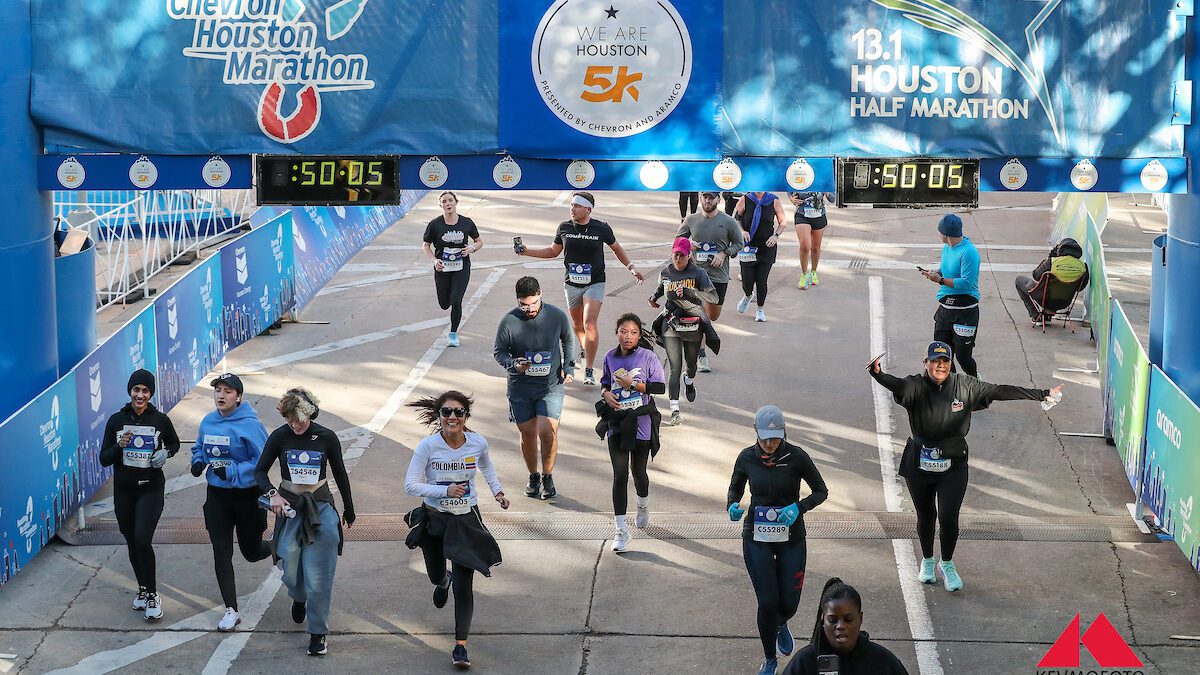Houston Marathon: The Ultimate Runner's Blueprint for Success
The Houston Marathon, one of the largest and most prestigious marathons in the world, attracts thousands of runners from all over the globe every year. For runners who are new to marathon training, the Houston Marathon can seem like a daunting challenge. However, with a well-structured training plan, dedication, and the right guidance, anyone can successfully complete the 26.2-mile course. In this article, we will provide a comprehensive blueprint for runners to achieve success in the Houston Marathon.
The Houston Marathon is known for its fast and flat course, making it an ideal destination for runners looking to set a new personal best. The course takes runners through the scenic streets of Houston, passing by many of the city's most iconic landmarks. However, the marathon is not just about the course; it's about the training and preparation that goes into it. In this article, we will focus on providing a step-by-step guide to help runners succeed in the Houston Marathon.
Understanding the Training Requirements
To succeed in the Houston Marathon, runners need to be well-prepared with a solid training plan. A typical marathon training plan lasts for 16-20 weeks and includes a combination of running, cross-training, and rest days. The plan should be tailored to the individual runner's needs and goals.
Here are some key components of a successful marathon training plan:
- Distance progression: Gradually increase the weekly mileage by no more than 10% each week to allow the body to adapt.
- Run intensity: Incorporate interval training, hill repeats, and tempo runs to improve running efficiency and endurance.
- Rest and recovery: Include rest days and cross-training days to allow the body to recover and rebuild.
- Nutrition and hydration: Focus on a balanced diet and proper hydration to fuel the body for optimal performance.
Creating a Personalized Training Plan
A personalized training plan is essential for success in the Houston Marathon. The plan should take into account the individual runner's goals, fitness level, and availability. Here are some tips to help create a personalized training plan:
- Consult a coach or experienced runner: Get guidance from a qualified coach or experienced runner who has completed the Houston Marathon.
- Assess your current fitness level: Evaluate your current running habits, fitness level, and any injuries or limitations.
- Set realistic goals: Set specific, achievable goals for the marathon, such as finishing within a certain time or completing the course within a certain distance.
- Incorporate progressive overload: Gradually increase the intensity and volume of training over time to continue making progress.
Building a Strong Foundation
A strong foundation is essential for success in the Houston Marathon. The foundation includes building a base level of cardiovascular fitness, muscular endurance, and mental toughness. Here are some key components of a strong foundation:
- Cardiovascular fitness: Engage in regular aerobic exercise, such as jogging, cycling, or swimming, to improve cardiovascular fitness.
- Muscular endurance: Incorporate strength training exercises to build muscular endurance in the legs, core, and glutes.
- Mental toughness: Develop a strong mental game through visualization, positive self-talk, and goal-setting.
Building Cardiovascular Fitness
Building cardiovascular fitness is essential for success in the Houston Marathon. Here are some tips to help build cardiovascular fitness:
- Start with aerobic exercise: Engage in regular aerobic exercise, such as jogging, cycling, or swimming, for at least 30 minutes, three times a week.
- Gradually increase intensity: Gradually increase the intensity and duration of aerobic exercise over time to continue challenging the cardiovascular system.
- Incorporate interval training: Incorporate interval training into aerobic exercise to improve running efficiency and endurance.
Incorporating Strength Training
Incorporating strength training into your training plan is essential for building muscular endurance and preventing injury. Here are some key components of a strength training program:
- Focus on lower body exercises: Focus on exercises that target the legs, glutes, and core, such as squats, lunges, and deadlifts.
- Use free weights or resistance bands: Use free weights or resistance bands to strengthen the muscles and improve running efficiency.
- Incorporate core exercises: Incorporate core exercises, such as planks and Russian twists, to improve running stability and balance.
Incorporating Strength Training for Runners
Incorporating strength training into your training plan can help improve running efficiency and endurance. Here are some tips to help incorporate strength training into your plan:
- Incorporate strength training two to three times a week: Incorporate strength training into your training plan two to three times a week, with at least one day of rest in between.
- Focus on exercises that target the legs and glutes: Focus on exercises that target the legs and glutes, such as squats, lunges, and deadlifts.
- Use progressive overload: Gradually increase the weight or resistance used in strength training exercises over time to continue challenging the muscles.
Incorporating Run-Specific Training
Incorporating run-specific training into your training plan is essential for building running efficiency and endurance. Here are some key components of run-specific training:
- Incorporate tempo runs: Incorporate tempo runs into your training plan to improve running efficiency and endurance.
- Incorporate hill repeats: Incorporate hill repeats into your training plan to improve running strength and endurance.
- Incorporate long runs: Incorporate long runs into your training plan to build endurance and mental toughness.
Incorporating Run-Specific Training for Runners
Incorporating run-specific training into your training plan can help improve running efficiency and endurance. Here are some tips to help incorporate run-specific training into your plan:
- Incorporate run-specific training two to three times a week: Incorporate run
Did Karla Homolka Parents Forgive Her
Eylon Levy Wife
Theez
Article Recommendations
- Hisashi Real Pos
- Who Ihad Kroeger Married To
- Matthew Labyorteaux
- Did The Pioneer Woman Have Atroke
- Aishah
- Islon Musk Married 2024
- Sophie Raiind
- Whatididdyo To Jaden
- Jodieer Husband
- Mete Kobal



